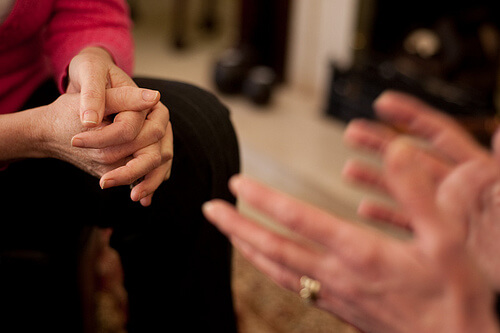Take Care of Yourself to Take Care of Others

It isn’t easy to be responsible for the care of another person. Taking care of someone is a difficult task and requires a lot of time, dedication, effort, and responsibility. When the well-being of another person depends on you, the energy and time you invest can start to wear you down.
In many cases, caretakers start to set aside their health and personal lives so that they can manage their new responsibilities, without being completely aware of it. Sometimes when it comes to caretaking, people neglect the most important thing: taking care of themselves.
People who dedicate some of their time to taking care of others should get adequate support and pay attention to their own health. Taking care of and reserving some time for yourself is fundamental.
Accepting the inevitable
Just like people don’t become dependent overnight, people also don’t become caretakers overnight. When a family member starts to present problems, there’s a process of adjustment through which the future caretaker starts to adapt to their new role.
The caretaker will generally go through a few phases before adapting to the new situation. In the first stage, it’s common for the person to deny that their family member needs help with everyday activities. But there comes a time when the problems are so evident that it’s impossible to continue denying the new reality.
Once the person has accepted that their loved one needs help, they’ll start to research information: what illness they’re suffering from, how it will develop, what kind of care they need, etc. In this stage, it’s common for feelings that are difficult to handle to appear, such as sadness, guilt, anger, and frustration.

They gradually start to assume new responsibilities and organize their time and resources to revolve around the person who needs care. Caretakers tend to adapt more or less to this new stage in life.
Adapting to change
When a person becomes a caretaker, their life as it was is begins to change. The new situation can bring changes to their family, work, personal relationships, and physical and mental health.
The caretaker will probably start to feel guilty, thinking that they’re not doing their job well, or feel extremely alone. Caretakers also frequently isolate themselves from others, which can aggravate their negative feelings.
Not all changes are negative. Despite being a difficult experience, fighting for someone can help you discover things about yourself or the other person that you didn’t know before and grow as a person.
Being consumed by exhaustion
After taking so much care of the other person, when you start to neglect yourself, it starts to show. It’s important to pay attention to the warning signs so you can resolve them when they arise.
Some of the signs that indicate that you’re at the breaking point include:
- Constant tiredness or exhaustion.
- Feeling alone or isolated.
- Increased consumption of medication or addictive substances.
- Frequent mood swings and increased irritability.
- Difficulty concentrating.
- Problems at work.

To take care of the other person, you have to take care of yourself
It’s essential to take care of yourself so that you can handle caring for the other person. Here are a few habits that can help you maintain physical and mental balance:
- Reorganize your time: prioritize your tasks and organize your activities. Set aside periods of rest, because it’s very important that you dedicate some time to just yourself.
- Get plenty of rest: get enough sleep and do a relaxing activity before you go to bed. Find moments throughout the day when you can stop and rest.
- Stay healthy: moderate exercise and a balanced diet will help you feel good about yourself, save energy, and release emotional tension.
- Express your feelings: it’s important to express how you feel, both the good and the bad. Positive feelings bring you closer to others and create a comfortable environment. Expressing your negative feelings will prevent the accumulation of more negativity and suffering.
- Maintain your social relationships: friends and family are basic pillars of personal well-being. Ask them for help when you need it, call them to tell them how you’re feeling, and avoid feeling isolated and trapped.

After caring for someone for a long time, some people enter into a spiral of exhaustion that’s difficult to escape. If the rhythm of your life is overwhelming you, ask for help as soon as possible. Take care of yourself so that you can take care of another life without consuming yours.
This text is provided for informational purposes only and does not replace consultation with a professional. If in doubt, consult your specialist.








